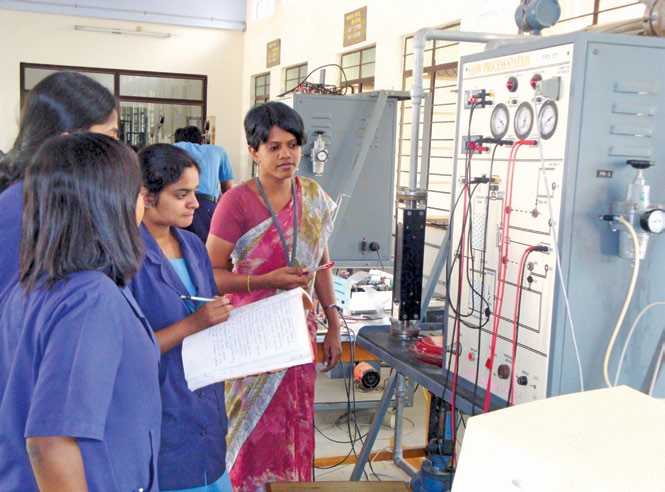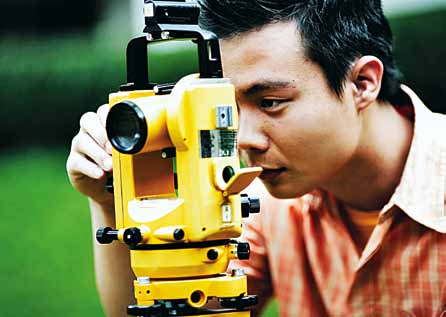
Instrumentation and control engineering is one of the brightest fields in engineering today. If you look at the Indian scenario, there are many people who are willing to make a career in this stream. There are many colleges that provide education in this field, and to top it all, there are ‘well-paid’ jobs as well.
Sharing his views on how instrumentation and control engineering is picking up as a preferred career choice, P.M. Tiwari, assistant professor, Amity University (Noida), says, “Nowadays almost all the industries are going for automation. So instrumentation and control engineers have a role to play in all the fields where there is automation. The industries are switching almost all their processes to automation. Students are interested in making career in this stream of engineering because there are job opportunities in this domain.”
Instrumentation and control engineering is a specialised stream of engineering that deals with measurement and control of process variables in a production process. This discipline finds its origin in both electrical and electronics engineering, and it covers subjects related to electronics, electrical, mechanical, chemical and computing streams. In short, it deals with measurement, automation and control processes.
Opportunities
A talented instrumentation and control engineer need not worry about getting a job because he has a sky full of opportunities to explore.
Ravikant Sharma, project manager, Honeywell International, says, “Instrumentation and control engineering is a very vast area. As the trend of automation picks up in the country, instrumentation and control engineers are finding more and more opportunities. Right from R&D units to aerospace companies, thermal power plants, steel plants, fertiliser plants, automobile companies, refineries and cement plants, these engineers find job opportunities in almost all domains of the world apart from instrumentation companies of course.”
The instruments created by instrumentation and control engineers automate the processes, reducing the involvement of manpower.
Sharma elaborates, “Gone are the days when managers used to think about deploying manpower to handle some processes in factories. Things have changed, courtesy the instrumentation and control engineers. Nowadays companies resort to minimal manpower as most of the processes are automated. Automation ensures maximum productivity and accuracy by using minimal manpower resources. It is due to these engineers and this stream of engineering that dependence on manpower has reduced, bringing efficiency in the processes. Instrumentation engineers can find jobs in both hardware and software sectors.”
There are more number of jobs for instrumentation and control engineers in the software sector but you should opt for your core area of expertise where you can make use of your knowledge and skillset.
Instrumentation and control engineers work with the industries with the goal of improving productivity, optimisation, stability, reliability, safety and continuity. These engineers design, develop, and maintain and manage the instruments and the instrumentation systems. Instrumentation engineer is the person who takes call on what kinds of instruments are needed for ensuring efficiency and quality of the end product.

Nature of job
An instrumentation and control engineer is required to:
1. Design and develop control systems
2. Maintain the existing control systems
3. Manage the control systems
4. Collaborate with design engineers, purchasers and other staff members involved in the production processes
5. Manage projects within the given restraints including cost and time
6. Troubleshoot
7. Ensure that the instruments comply with health and safety regulations
8. Ensure that quality standards are maintained
9. Provide consultancy support
[stextbox id=”info” caption=”Some colleges offering courses in instrumentation and control engineering”]Nirma Institute of Technology College of Engineering
IIT Kharagpur
NIT Trichy
Ramrao Adik Institute of Technology
Andhra University
Bharati Vidyapeeth’s College of Engineering
Shri Guru Gobind Singhji Institute of Engineering and Technology
Smt Indira Gandhi College of Engineering
Dr B.R. Ambedkar National Institute of Technology
N.M. Institute of Engineering & Technology[/stextbox]
Requirement
An instrumentation and control engineer is expected to learn subjects like industrial instrumentation, system dynamics and process control.
Tiwari says, “Some basics required for this job include in-depth knowledge of physics and exceptional logical ability. Those willing to make a successful career in this domain and find applicability in both software and hardware domains should master subjects like microcontroller-based instrumentation, microprocessor-based instrumentation, VLSI, computer architecture and embedded system design. They should also be thorough with computer languages like Fortran and ‘C.’ The job requires a lot of precision, so the person should have a close-to-perfection attitude.”
Like in the case of all the other engineering domains, instrumentation and control engineers are expected to be inquisitive by nature. They should have the knack of finding out the way things are made.
Courses
Almost all the universities (whether general or deemed) offer a bachelor’s course in this stream. There are a host of private colleges as well where you can apply to pursue this stream of engineering.
In courses, you have various options to choose from:
1. BE in instrumentation engineering (four-year programme)
2. ME in instrumentation engineering (two-year programme) after BE
3. Diploma in instrumentation engineering (two-year programme)
Pay package
Like any other industry, the instrumentation and control engineers are paid according to their abilities and norms of the company.
Rohit Tickoo, director, Tycon Automation, says, “Instrumentation and control engineers are offered decent pay packages if they are talented enough. But this depends upon the company and nature of job as well. On an average, these engineers are offered money varying from Rs 100,000 per annum to Rs 400,000 per annum. Of course, the payment is comparatively better in private sector.”
The author is an assistant editor at EFY








Thanks for wonderful information
You are most welcome.